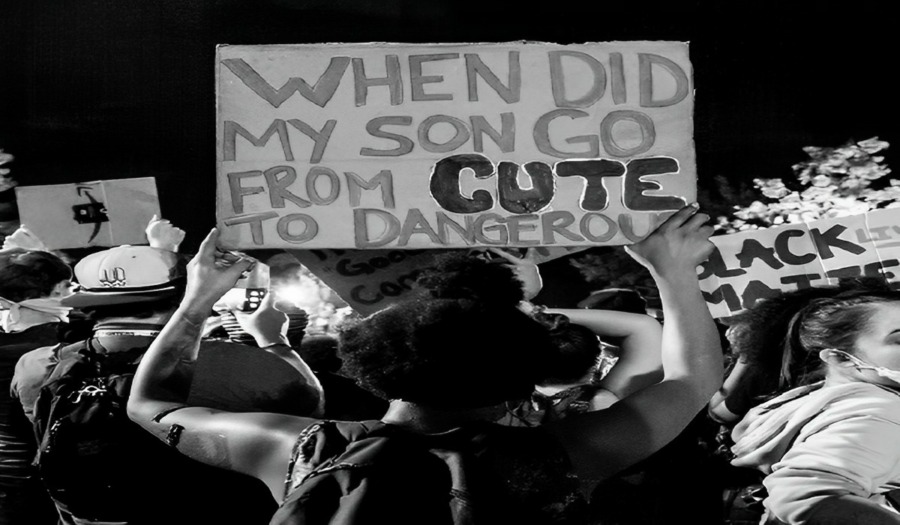In America, the fears of black parents for the safety of their children are deep-seated, and sadly, they are grounded in harsh realities. These concerns revolve around the very real possibilities of their children not making it home safely from routine activities like visiting friends or even just crossing the street. This article examines the genuine fears black parents have for their children’s safety, including concerns about interactions with law enforcement, encounters with those who perpetuate stereotypes, and the ways in which society’s perceptions affect their children’s growth and development.
One of the most heart-wrenching fears that black parents face is the prospect of their children not returning home from ordinary activities. The fear of sending their kids to a friend’s house or allowing them to walk across the street highlights the unsettling awareness that simple tasks can sometimes have dire consequences. These concerns stem from tragic incidents that have claimed the lives of innocent black children while they were engaging in everyday activities.
The fear of interactions with law enforcement is another distressing reality that black parents must navigate. The anxiety surrounding police encounters is not unfounded, as data shows that black individuals are disproportionately more likely to experience violence during such interactions. The unfortunate narrative of young black men being targeted by police amplifies the worry for parents, who feel that their children’s lives might be at risk based solely on the color of their skin.
Beyond police interactions, black parents also worry about their children falling victim to incidents initiated by those who subscribe to harmful stereotypes. These stereotypes perpetuate the notion that young black men do not belong in certain areas, solely due to the color of their skin. Such perceptions can lead to confrontations or even violence, creating an environment where parents are concerned for their children’s safety whenever they venture outside their familiar surroundings.
The progression from adorable children to individuals who are feared or viewed with suspicion is a painful transition that many young black individuals experience. This gradual shift in perception is influenced by a societal trend that seems to have no end. The lingering effects of this trend are evident when older white individuals still clutch their purses or express discomfort when a young black person is nearby. This ingrained response reveals the deeply-rooted nature of racial biases and the urgent need for change.
The Central Intelligence Agency (CIA) acknowledges that individuals are less likely to change their habits and opinions after age 25, even in the face of evolving surroundings and upbringing. This implies that breaking down long-standing biases is a complex challenge. Considering that these biases often persist within institutions and authorities, it becomes clear that dismantling these barriers requires multifaceted efforts.
The question then arises: What can be done to alleviate the concerns of black parents and ease their worries for their children’s safety? Addressing these fears requires a comprehensive approach involving policies, community engagement, and education changes.
Addressing Police Reform is crucial for alleviating fears surrounding law enforcement interactions. By implementing measures such as de-escalation training, unbiased policing, and enhanced accountability, meaningful change can be achieved. Holding police officers responsible for their actions and fostering trust within their communities are essential to this process.
Fostering Community Dialogue is vital in bridging gaps in understanding and perception. Open conversations between law enforcement agencies and their communities can build trust and reduce anxieties. Initiatives like community policing, town hall meetings, and collaborative programs facilitate communication and mutual respect.
Education and Awareness play a pivotal role in challenging prevailing stereotypes and biases. Inclusion of diverse perspectives and historical contexts in school curricula contributes to a more informed and empathetic society. The media also holds responsibility in portraying a range of stories that challenge existing narratives, promoting understanding and empathy.
Promoting Cultural Competency Training is essential in countering racial biases that often influence decision-making. Providing professionals in various fields with cultural competency training helps them better understand the nuances of different cultures. Healthcare providers, educators, and service providers can benefit from this knowledge, promoting fair and equitable treatment for all.
Strengthening Legislation Against Discrimination is a critical aspect of addressing bias-based harm. Active enforcement of anti-discrimination laws helps combat profiling, racism, and other forms of bias. Legal measures contribute significantly to fostering a more just and equitable society for everyone. Ultimately, the journey toward easing these fears requires a commitment to dismantling biases and working together to create a more just and inclusive society.









